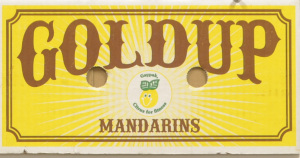This morning, on the way to work, I had the most affirming and uplifting encounter I’ve had in months. I virtually skipped down the hill to the office. But I’m not supposed to write about that. I’m supposed to be writing something about children or parenting. My kids’ book Cats on the Run is coming out shortly, you see, and I’m supposed to be directing all attention to that. All blog-posts are now to be part of a ‘comfortably tenacious’ marketing-campaign persuading you to pre-order copies of Cats on the Run for anyone you’ve ever heard of who is eight-to-ten years old and can read. And take one for yourself. But what do I know about kids? Agh, I’m not supposed to reveal that to the book-buying public! What I mean is, that will have to wait because I’m so keen to share with you what happened on the way to work.
My friend X is an impressive bloke. Not only is he a demon skier, a good laugh and an impressive athlete, he’s also a judge. Yes, a judge. A proper one, with a wig and a wingsuit and everything. But most impressive of all, X is a Really Nice Guy. This last achievement, by the way, is the greatest in my opinion. Being an RNG is not easy in this crazy mixed-up world and those of you who manage it are, I think, under-rated. I always remember at my over-achieving Uncle David’s funeral how everyone praised him to the heavens. Not because he’d climbed the Foreign Office ladder so high that they made him a Lord, but more because of what a lovely fella he was. That’s something, don’t you think, to be remembered for how nice you were more than anything else? I imagine X will be remembered the same way (although I hope his funeral is a long way off) even though by then, no doubt, his achievements will be no less extraordinary.
So what did X and I have an open heart-to-heart about over coffee in the law-courts café this morning? How he couldn’t help feeling he should have achieved more in life. How media and society seemed to conspire to remind him he should be richer, slimmer, faster, more successful, more important. This is a man who chose the law so he could help people. He spends days fretting over what is best for a young offender, whether to send him away to give him a lesson, or give him a second chance hoping he’ll mend his ways. Lies awake at night worrying in case someone he’s given too a light sentence might commit another crime. And he wishes he was more important?
‘Yeah, well, I see colleagues being made judges in higher courts and think maybe I should have aimed higher.’
He was amazed when I told him I thought all middle-aged men go through this. Seemed elated to think it wasn’t that he should have done more, but that he is hard-wired to think like that. I was excited because it proved my theory that, no matter what you achieve, at a certain greying-age boom! you feel like a failure. We both kept smiling at the recognition we saw in each other (me and a judge, imagine), building on each other’s opinions until we’d formed a hypothesesis: the more successful you are, the harder you’ve had to fight to get to where you’ve got, the bigger the failure you feel, no matter what you’ve achieved. Because your feelings are not a symptom of your lack of success, they are in fact the cause of success. That ‘I must do more’ attitude is what got you where you are and turning it off now is so, so difficult.
Do you realise what this means? It means I’m not a middling middle-manager nor a justifiably unpublished writer who’s never really achieved much in life. I am, in fact, a typical over-achieving male who cannot, by definition, ever be content with his achievements. And so are you. You’re amazing, look at what you’ve achieved. If you don’t believe me, read the above three times again. On the other hand, if you haven’t yet gone through your mid-life crisis, maybe you don’t know what I’m talking about. But if you know any man between the ages of forty and fifty who isn’t looking so chirpy recently, please share this with him. Tell him he is not alone. Even the kindest of judges judge themselves too harshly.


